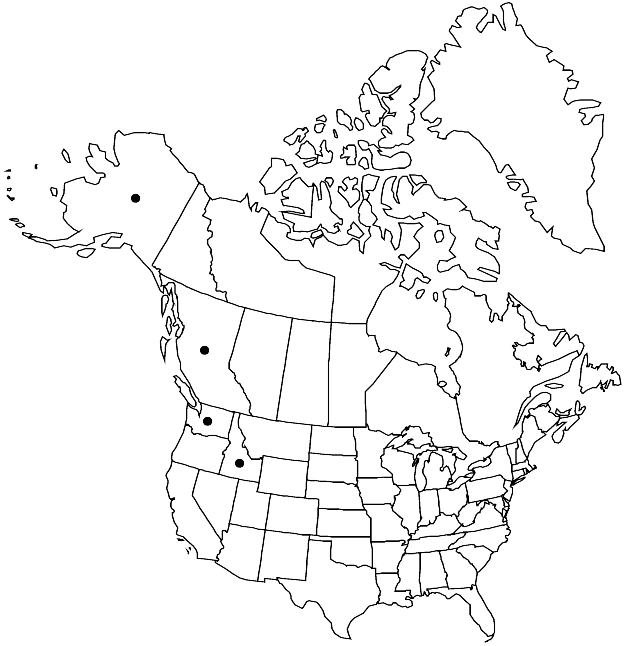Ptychostomum meesioides
Phytologia 87: 21. 2005.
Plants in dense or open turfs, green or yellow-green, sometimes reddish proximally. Stems 0.5–1(–2) cm, fertile stems evenly foliate, sometimes comose, innovations evenly foliate. Leaves green to yellow-green or rarely reddish, crowded, strongly contorted to shrunken when dry, ovate-lanceolate, flat, 1–3(–3.5) mm, often gradually enlarged toward stem apex; base green, somewhat to strongly and narrowly decurrent; margins revolute proximally, plane distally, limbidium strong, in 2 or 3 rows; apex acuminate; costa percurrent to short-excurrent, awn stout; proximal laminal cells long-rectangular, 3–5:1; medial and distal cells 16–25 µm wide, 3–4:1, walls thin, not porose. Specialized asexual reproduction absent. Sexual condition dioicous. Seta red-brown, 2–4 cm, stout, straight to often flexuose or geniculate. Capsule brown, shape highly variable, elongate-pyriform to clavate, strongly curved and asymmetric, (2–)3–5 mm, mouth yellow-brown; median exothecial cells elongate, 40–85 µm, many cells 3–4:1; operculum conic, apiculate; peristome well developed; exostome teeth yellow or orange basally, hyaline distally, lamellae straight, pores absent near base along mid line; endostome not adherent to exostome, basal membrane 1/2 exostome height, segments with ovate perforations, cilia present, appendiculate. Spores 14–20 µm, yellow to green.
Phenology: Capsules mature Jun–Sep.
Habitat: Wet soil, along streams, wetlands, often calcareous
Elevation: low to high elevations (0-3000 m)
Distribution

B.C., Alaska, Idaho, Wash.
Discussion
Ptychostomum meesioides is an arctic-boreal to north-temperate species, narrowly endemic in primarily coastal hyperoceanic areas of western North America. The species is very similar to P. pallens, although somewhat smaller and green-colored rather than the typical pink coloration of the latter. The diagnostic characters are those of the sporophyte, primarily the strongly curved capsules and elongate median exothecial cells. The median exothecial cells of P. pallens are shorter, 1–2:1. Capsules are needed for identification.
Selected References
None.